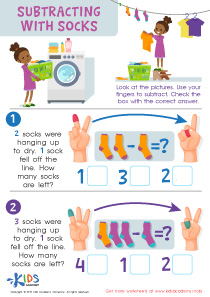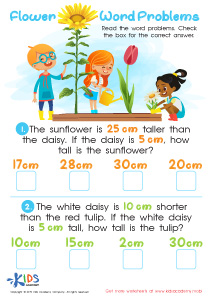Time Word Problems Worksheets for Ages 3-9
3 filtered results
Difficulty Level
Grade
Age
-
From - To
Subject
Activity
Standards
Favorites
With answer key
Interactive
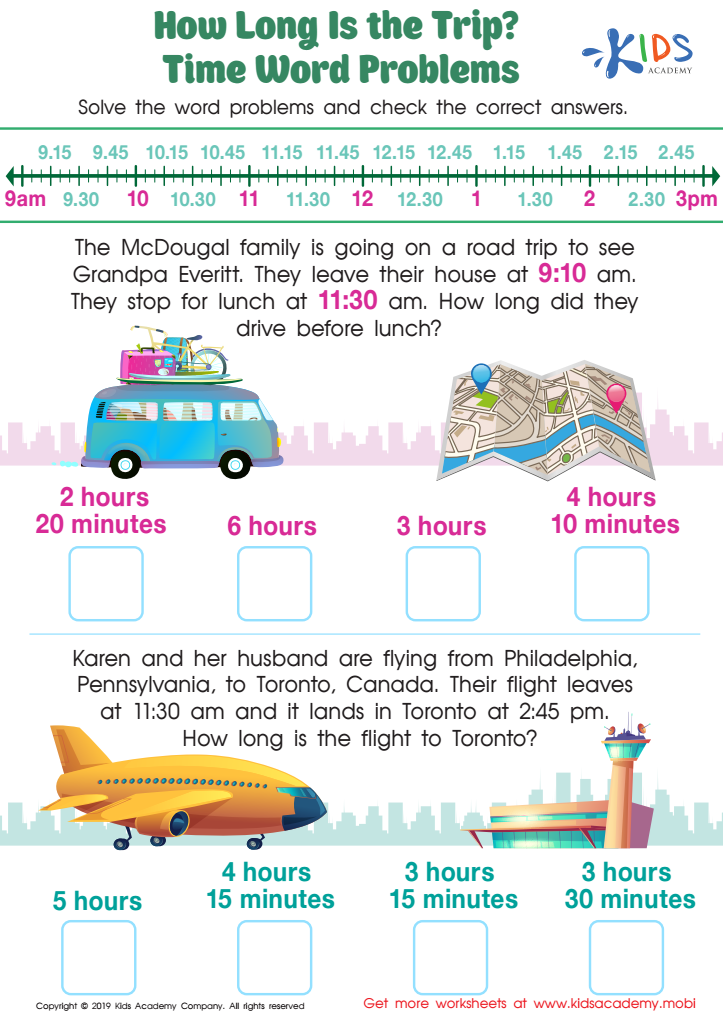

How long is the Trip? Time Word Problems Worksheet
Get your kids in the mood for learning with fun questions about trips. Point at each picture and ask them to identify the mode of transport. Read the word problems, help them solve and check the answers.
How long is the Trip? Time Word Problems Worksheet
Worksheet
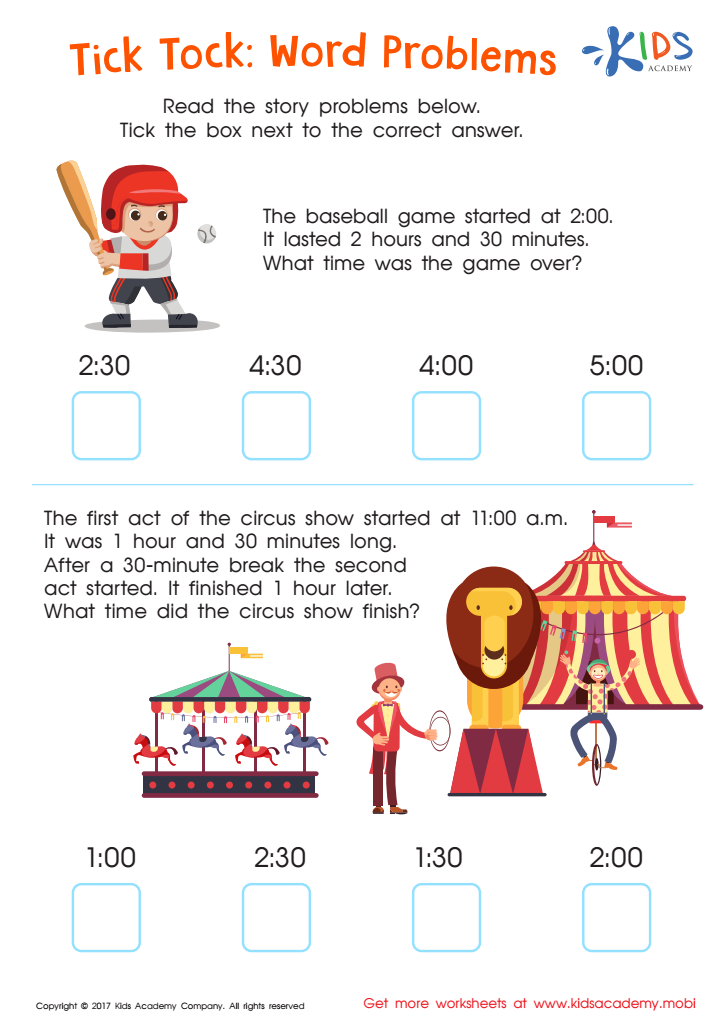

Tick Tock Word Problems Time Worksheet
Mix math and fun with this telling time word problems worksheet! Your child will love solving the events' finishing times using the vivid colors and joyful illustrations. Tick Tock!
Tick Tock Word Problems Time Worksheet
Worksheet
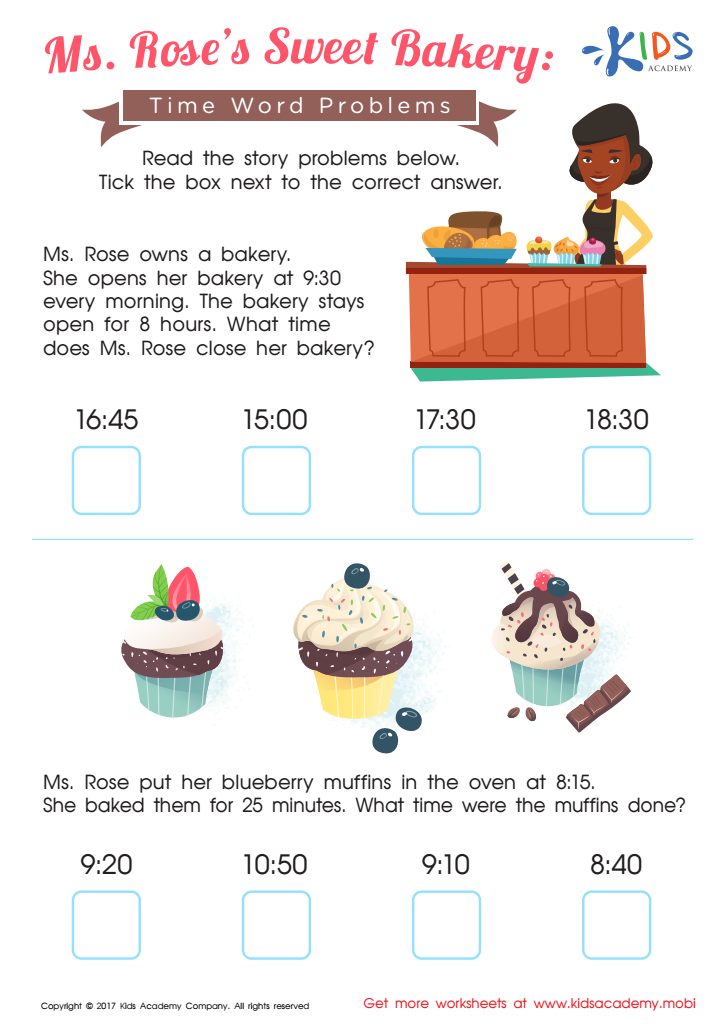

Ms. Roseв's Sweet Bakery Time Worksheet
Help your child understand the 24-hour clock using this fascinating telling time word problems worksheet: Sweet Bakery! Widely known as "military time", this skill isn't taught in school but is important for your kid to master.
Ms. Roseв's Sweet Bakery Time Worksheet
Worksheet

 Assign to the classroom
Assign to the classroom







